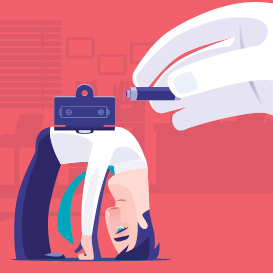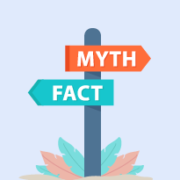Erectile Dysfunction and Hearing Loss
Quality of life is something that’s on everyone’s minds these days. How to live better, feel better, and make the most of the relationships and activities we enjoy. It’s no secret that health concerns can present challenges that affect our quality of life, and hearing loss and erectile dysfunction are two of them. These conditions are relatively easy to treat, but few people realize they’re linked.
What the research says
A study conducted by the Department of Otolaryngology at Taipei Medical University Hospital found that men who experienced sudden sensorineural hearing loss (SSHL) were about twice as likely to develop erectile dysfunction as their peers with normal hearing. This held true across different age groups. No conclusions have been drawn about the reason behind the correlation, but researchers strongly suspect it may be of a vascular nature, as subjects with hypertension and chronic renal disease were found to be at an even greater risk of ED. Hearing loss is also known to be exacerbated by vascular diseases.
SSHL is defined as a partial or total hearing loss that occurs rapidly over the course of hours or days. This is considered a medical emergency and should be investigated by a doctor right away. Only a small percentage of diagnosed cases of SSHL have an identifiable cause, but the most common triggers include:
- Infectious diseases
- Trauma, such as a head injury
- Autoimmune diseases, such as Cogan’s syndrome
- Ototoxic drugs (drugs that harm the sensory cells in the inner ear)
- Blood circulation problems
- A tumor on the nerve that connects the ear to the brain
- Neurologic diseases and disorders, such as multiple sclerosis
- Disorders of the inner ear, such as Ménière’s disease
Men living with a hearing loss that occurred suddenly should be aware that they have an increased risk of developing erectile dysfunction.
The effects of ED medication on hearing
Unfortunately, the connection between sudden hearing loss and erectile dysfunction also goes in the other direction. Sometimes ED precedes SSHL, and it’s the medications used to treat the former that lead to the latter.
In the United States, the FDA relabeled phosphodiesterase Type 5 (PDE5) inhibitor erectile-dysfunction drugs after finding over 30 reports of sudden hearing loss in male patients taking Viagra. Since then, researchers at the University of Alabama at Birmingham have discovered that men over 40 taking PDE5 drugs (which include Viagra, Cialis, and Levitra) have double the risk of developing hearing loss compared to men who do not.
The FDA reports that some incidents of sudden hearing loss also included vestibular problems such as tinnitus, vertigo, or dizziness, and that the hearing loss was temporary in about a third of cases. There is some evidence that cessation of ototoxic medications can reverse the hearing damage they cause, but patients are advised to consult their doctor before stopping a medication. Click here for more information about ototoxicity and what to do if you experience it.
If you or someone you love is currently being treated for erectile dysfunction, be on the lookout for hearing issues and contact an audiologist or ENT for an evaluation!
Sources
Hsu, Hsin-Te, et al. Increased Risk of Erectile Dysfunction in Patients with Sudden Sensorineural Hearing Loss. Otology & Neurotology. https://journals.lww.com/otology-neurotology/pages/articleviewer.aspx?year=2013&issue=07000&article=00014&type. Accessed November 2, 2022.
McGwin, Gerald Jr. Phosphodiesterase type 5 inhibitor use and hearing impairment. Archives of Otolaryngology-Head and Neck Surgery. https://pubmed.ncbi.nlm.nih.gov/20479381/. Accessed November 4, 2022.
Medical News Today. FDA Reports Hearing Loss Linked To Viagra And Other PDE5 Inhibitors. https://www.medicalnewstoday.com/articles/86215. Accessed November 8, 2022.
National Institute on Deafness and Other Communication Disorders. Sudden Deafness. https://www.nidcd.nih.gov/health/sudden-deafness. Accessed November 8, 2022.














Leave a Reply
Want to join the discussion?Feel free to contribute!